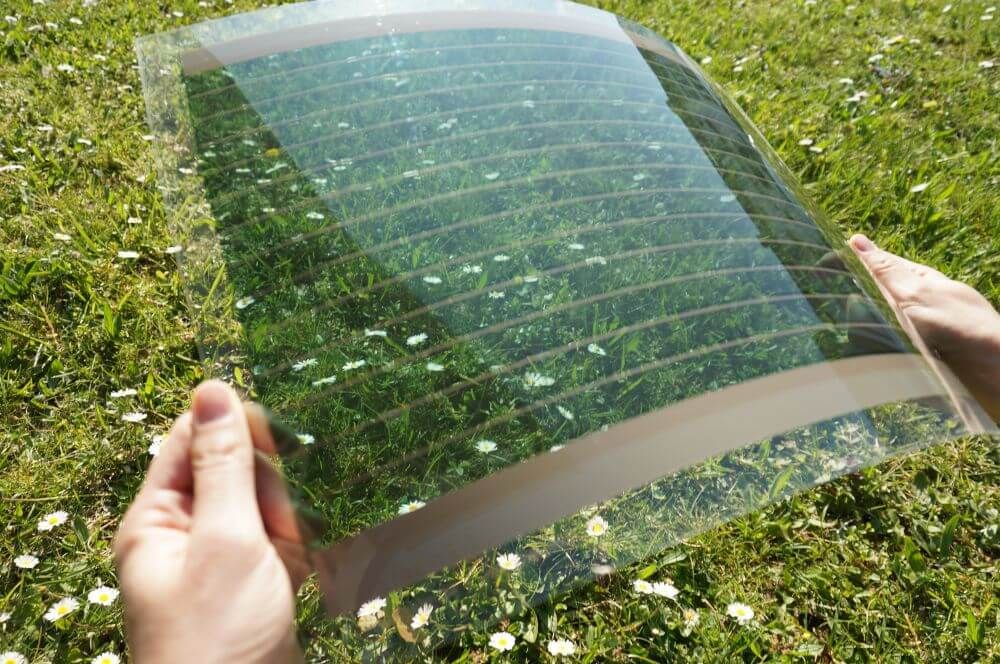| Duration: | 09/2021 - 07/2024 |
| Contracting Authority/ Sponsors: | Baden-Württemberg Stiftung |
| Project Focus |
ADAPT – Climate Adaptation through Organic Agri-Photovoltaics


Climate change has become a tangible reality in Germany in recent years. Heatwave summers and low precipitation in winters have led to massive problems in agriculture in many places. Protected cultivation under foils is a current trend, causing additional costs and waste problems. In this project, highly transparent organic solar cells will be developed that allow visible light, which is important for plants, to pass through and use the infrared portion to generate electricity. These could make it possible to simultaneously generate the urgently needed solar power for a successful energy and mobility turnaround from the film covers that are intended to protect plants from heavy rain, hail, sunburn and desiccation.
A unique selling point of organic photovoltaics (OPV) is the unique adaptability of organic semiconductor materials. For example, by modifying the molecular structure, the optical properties can be adjusted so that the solar cells strongly absorb light in the near infrared, but allow visible light to pass through unhindered. This is not possible with conventional semiconductors and also perovskite semiconductors, since photons with an energy greater than the band gap are always absorbed in these crystalline materials. In fact, the absorption coefficient increases with increasing energy, which means that visible light is always absorbed more strongly than infrared light. This unique property allows highly transparent solar cells to be produced with higher efficiency than with conventional technologies. The added value of solar power could counter-finance higher quality films and glass greenhouses, making climate adaptation financially easier for farmers and releasing far less waste in the form of cheap plastic films. This would simultaneously contribute to climate change adaptation as well as prevention.
The "ADAPT" project is intended to bring Fraunhofer ISE researchers together with potential users in agriculture in order to determine practical requirements for the technology and, conversely, to enable farmers to gain initial experience with organic solar films. Infrared absorbing OPV materials currently under development will be optimized in the laboratory and transparent OPV modules will be produced in a roll-to-roll process. In addition to the actual development of these highly transparent OPV, precise knowledge of the practical requirements of users is extremely important for targeted technology development and a successful market launch, in order to identify possible hurdles to broad acceptance and rapid dissemination of the technology at an early stage and to incorporate them into the development. Modules produced in a roll-to-roll process will be made available to users to provide initial impressions of transparency, the mechanical properties and possible formats. Exposure of the modules in the field will also reveal requirements for the mechanical properties and possible weak points. Ideas for practicable systems and possible applications will be discussed together with users.
In the first year of the project, the focus of development was on identifying a suitable combination for the first demonstrator modules by testing various organic semiconductors and optimizing the thin-film optics of the NIR reflective back electrode with simulations.
April 2022, the first workshop was held with people from the agricultural environment. The focus was on the exchange and the respective practical requirements, such as the desire for high flexibility (ventilation, degree of shading), as well as concerns about the load factors snow and wind loads and the discussion of possible solutions.
Several interested parties who are interested in the use of these systems and would be available for a demonstrator project already contacted us via the homepage.